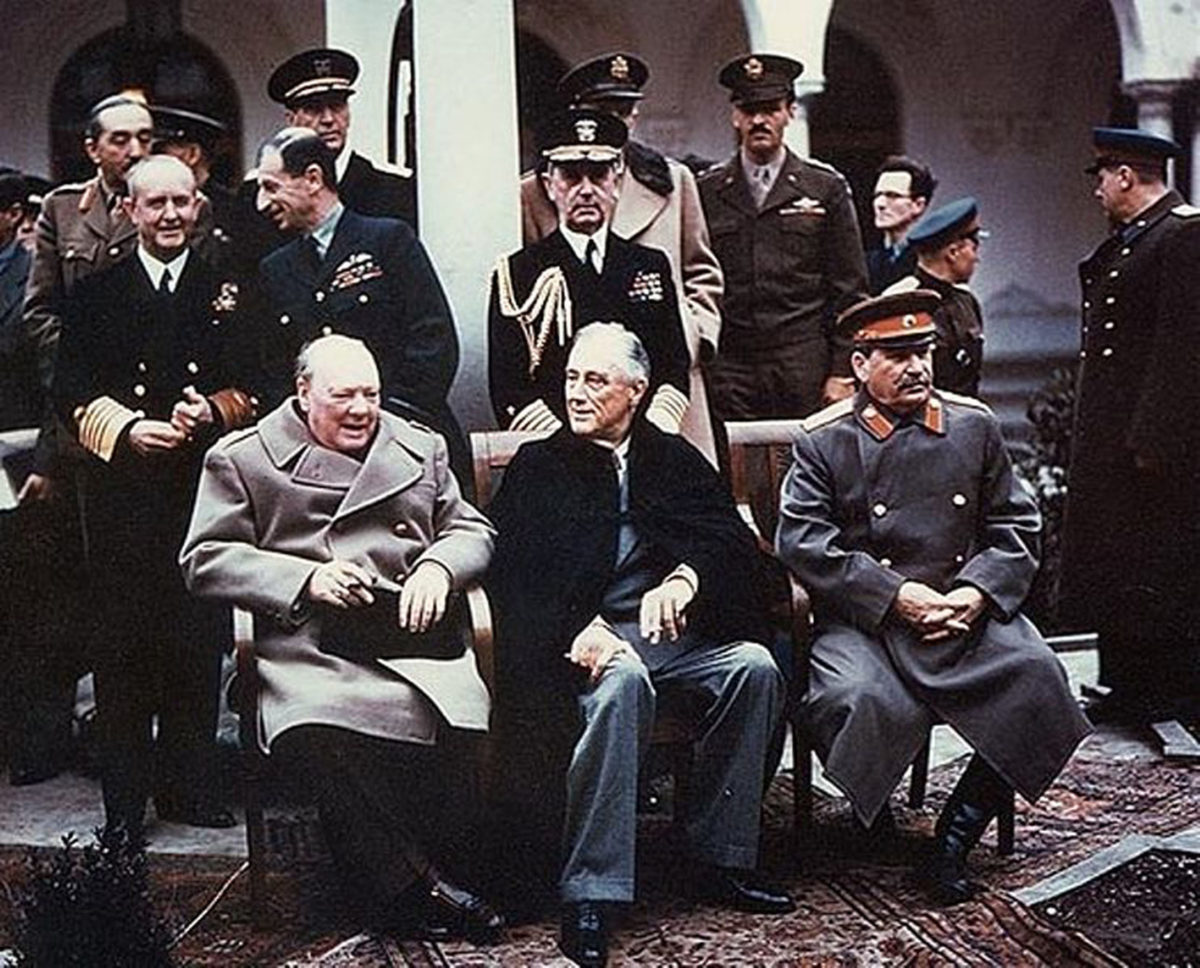Leadership of World War II’s top three Allied powers, British Prime Minister Winston Churchill, President Franklin D. Roosevelt and Soviet Premier Josef Stalin, came together 75 years ago for eight days at the Yalta Conference in Crimea. With the war in Europe rapidly coming to a close, the three leaders discussed the ways in which post-war Germany would be governed, and how to deal with the political and social problems of a shattered Europe.
They decided each power would occupy a separate zone of Germany under a central control commission consisting of the supreme commanders of the three powers and based in Berlin. France was invited to join the occupation later.
Yalta was the second of three major wartime conferences: Casablanca, Tehran and Potsdam. At Casablanca from Jan. 14-24, 1943, Roosevelt and Churchill planned the Anglo-American European strategy and declared the goal of Germany’s unconditional surrender. Stalin was unable to attend due to the ongoing Battle of Stalingrad. The Soviet leader did attend the November 1943 Tehran Conference, which further coordinated the Allies’ military strategy against the Axis Powers and decisions concerning the post World War II era.
Churchill had been a bulldog who drove his ideas by sheer force of personality and rhetoric, while Stalin imposed his will on his own people with a brutal regime of fear and terror.
Born into a well-to-do American family, by early 1945 Roosevelt was a very sick man. Yet after winning a fourth time in the 1944 election, he was able to stand up and wave to his constituents. For him it was a feat. Two days later, he began the 7,000-mile journey to Yalta in Crimea.
Yalta was arduous—eight days at sea, a 12-mile flight to a tiny airfield at Saki then a six-hour drive by car. According to journalist Eric Fettman, Roosevelt’s mental status in the last year of his life revealed a new level of suffering from episodic lapses to complex partial seizures.
Churchill was alarmed at Roosevelt’s condition—noting the president’s ailing, faraway look. Roosevelt’s interpreter agreed he was lethargic but mentally sharp. He insisted the Soviets make good on their pledge to enter the Pacific War after the German surrender. Yet Stalin had no intention of keeping his promises.
Roosevelt died of a cerebral hemorrhage on April 12, 1945. He was followed into office by his vice president, Harry Truman, who joined Churchill and Stalin at the final meeting of the “Big Three.” Held near Berlin from July 17 to Aug. 2, 1945, the Potsdam Conference finalized Allied plans for the administration of defeated Germany.





